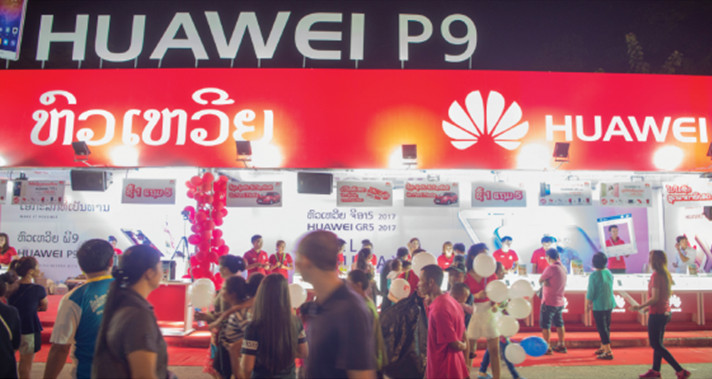




 |
 |
 |
|||
 |
 |
 |
 |
 | |
 |
 |
 | |


| 글로벌 트렌드 | 내서재담기 |


  |
 |  |
화웨이를 시작으로 미국의 중국에 대한 철의 기술 장막이 펼쳐지고 있다. 이는 미국만이 아니라 미국의 동맹국들을 중심으로 전 세계적인 차원으로 이어지고 있다. 철의 기술 장막은 중국제조 2025에 큰 타격을 입히고, 향후 중국몽에 대대적인 변화를 예고한다. 현재 상황은 어떠하고 향후 어떠한 일들이 일어날까?

미중 냉전에서 미국이 승리하려면, 통신, 인공 지능, 생명 공학, 나노 테크와 같은 다양한 영역에서 미국과 대등한 기술력을 달성하고자 하는 중국을 능가해야 한다. 특히 규모와 성숙성, 유비쿼터스 환경 때문에, 통신 분야의 우위는 미국이 반드시 승리해야 하는 긴박한 전쟁터라 할 수 있다. 이 산업에서 중국의 지배적 지위를 파괴하기 위해, 미국은 ‘공급과 수요’라는 도구를 활용하여 동맹국들과 강력한 협력을 통해 중국을 몰아세우고 있다.
수요를 방해하는 것은 미국과 동맹국들이 차세대 인프라에서 중국산 제품을 배제하는 것을 의미한다. 2020년 7월 영국 정부는 5G 이동통신 네트워크에서 화웨이 장비 사용을 금지하기로 결정했다. 이 결정은 거대 중국 모바일 기업에 대한 영국의 이전까지의 개방성을 뒤집는 것이었다. 그전까지 영국의 개방성은 파이브 아이스(Five Eyes, 미국·영국·캐나다·호주·뉴질랜드 등 영어권 5개국이 참여하고 있는 기밀정보 동맹체로, 1956년 결성)와는 상충되는 것이었다. 미국, 호주, 캐나다, 뉴질랜드, 즉 파이브 아이스 동맹의 다른 4개 회원국은 오랫동안 화웨이 장비에 대해 심각한 보안상의 의심을 표해왔다. 특히 화웨이 장비는 중국 스파이 활동을 위한 백도어를 설치하는 데 사용될 수 있기 때문이다.
영국이 정책을 바꾼 이유는 무엇일까? 최근까지 영국 정부는 제한된 기술적 고려 사항만을 기반으로 보안 위험 평가를 해왔다. 이러한 위험 평가는 악의적인 제3자의 공격에 대한 화웨이의 소프트웨어 견고성에 크게 좌우된다. 즉, 영국은 스파이 백도어의 위협을 엄격하게 평가하지 않았다. 더욱이 영국 정부에는 이러한 민감한 문제에 대해 그들과 가장 가까운 동맹국들과 이반된 위치에 계속 서 있을 수 없다는 인식이 점차 커졌다. 영국의 결정 이후, 남아있는 서구권들도 화웨이에 대한 입장을 조정 중이다. 화웨이의 최대 비서구 고객인 인도도 마찬가지이다.
한편 역사적으로 중국을 의심하지 않았던 국가들도 이러한 전례를 따를 수 있다. 주요 OECD 국가들과 다른 기술 표준으로 운영되는 모바일 장비에 갇히고 싶지 않기 때문이다. 이로 인해 중국에게는 러시아, 그리고 아시아 및 아프리카들과 같이 상대적으로 빈곤한 일부 국가들만 고객으로 남을 수 있다.
마케팅의 관점에서 볼 때, 화웨이는 격변과 같은 ‘행운의 반전’을 겪었다. 2019년 여름까지만 해도 이 회사는 애플, 구글, 삼성의 시장 지배력을 합친 것과 비슷한 규모로 모바일 세계를 장악할 준비를 마친 것처럼 보였다. 전 세계의 국가들이 향후 10년 동안 통신 인프라 구축에 수천 억 달러의 투자를 준비하면서, 화웨이는 그 어떤 경쟁자들보다 더 저렴하고 더 빠르며 더 포괄적인 제품 준비를 마쳤다.
그러나 아이러니하게도 중국에서 시작된 코로나 19가 화웨이의 몰락에 중요한 역할을 했다.
우선 코로나 바이러스로 인해 각 국가에 긴급해보였던 5G의 데드라인이 느슨해졌다. 이들 국가들은 공중 보건 위기와 이로 인한 재정상 제약으로 인해 5G에 대한 대대적인 투자 결정을 부담없이 다소 1년 이상 연기할 수 있었다. 이로 인해 에릭슨, 노키아, 삼성과 같은 화웨이의 경쟁자들이 그들의 제품에 대한 가격 대비 성능을 더 높일 것으로 기대된다.
또한 코로나 19는 전 세계적으로 불안정한했던, 중국에 대한 ‘공급체인 의존성’을 고스란히 드러냈다. 워싱턴과 런던은 G7에 호주, 인도, 한국으로 구성된 소위 D-10 민주주의 국가들이 기술 주류(technological mainstream)로부터 중국을 배제하고 무역호황을 이끌어낼 수 있는 방법을 모색 중이다.
철의 기술 장막을 펼치기 위해, 미국은 공급 차원에서 중국에 대한 압력을 점진적으로 더 높이기 시작했다. 2020년 8월 17일, 미 상무부는 화웨이에 대한 새로운 수출 제한을 발표했다. 미국의 지적 재산을 포함하고 있는 모든 마이크로칩, 혹은 미국의 지적 재산을 포함하는 기계를 사용하여 제조된 모든 마이크로칩이라면 전 세계 어떤 회사든 중국에 대한 판매를 금지시킨 것이다. 이로 인해 화웨이는 상업적으로 이용 가능한 마이크로칩을 더 이상 공급받을 수 있게 되었다. 반도체 부문에서 미국의 지배력을 감안할 때 이것은 화웨이가 해외로부터 공급받을 수 있는 거의 모든 칩에 적용된다. 내년 초에 칩 재고가 고갈되면 화웨이는 더 이상 실존적 위기를 막을 수 없을 것으로 보인다. 미국이 TSMC(Taiwan Semiconductor Manufacturing Co.)와 삼성전자와 같은 대형 반도체 제조 기업들에게 이러한 미국의 조치를 준수시킬 수 있다고 가정할 때, 이러한 공급 압박은 향후 수년 동안 5G 인프라와 스마트폰 판매에 대한 화웨이의 야망을 크게 축소시킬 것이다.
놀랄 것도 없이, 화웨이와 중국 정부는 미국이 주도하는 파이브 아이즈의 화웨이 거부에 대응하고 있다. 실제로 이들은 이러한 움직임을 중국을 시기하는 미국에 의한, 세계에서 정당한 위치에 있는 중국을 거부하는 시도로 규정하고 있다. 중국은 특히 도널드 트럼프에 대해 그의 기존 인종적 발언을 화웨이에 대한 박해와 엮고 있다.
그러나 그들의 주장과 달리, 미중 균열 이전에도 화웨이는 기술 독점에 있어 세계가 온전히 믿을 수 있는 기업은 아니었다. 이들의 독점은 애플이나 구글이 했던 독점과는 달랐다. 적어도 애플이나 구글과 같은 서구 기업들의 경우, 독점에 대한 민주적 규제나 통제가 가능했다. 화웨이의 스파이 행위 혐의와 상관없이, 이들을 안고 가는 것은 현대 민주주주의 국가들에게 돌이킬 수 없는 위협이 될 가능성이 있었다. 그것이 단 1%의 확률에 불과해도 그것은 한 국가에게 치명적일 수 있다.
그렇다면, 결론은 무엇일까?
서구 사회는 지난 30년 이상 중국에게 불공정 거래 관행, 지적 재산 절도, 인권 침해를 당해왔다. 그러나 이제 이들은 중국의 최대 약점을 공격하고 있다. 중국의 약점은 고객과 최첨단 기술에 있어 글로벌 경제에 대한 의존성이 매우 높다는 것이다. 이 두 가지가 차단되자, 글로벌 경제를 지배하고 군사적 헤게모니를 달성하려던 중국의 야망은 실제로 심각한 타격을 입고 있다. 화웨이는 서구 세계의 첫 번째 공격 타깃인 셈이다.
이러한 추세를 고려할 때, 우리는 향후 다음과 같은 예측을 내려 본다.
첫째, 미국 기술 기업들이 고객으로서의 화웨이와 다른 중국 기업들을 잃는 것에 대해 불평을 할 것이다. 그러나 전 세계적인 수요가 비중국 통신 기업들로 이동함에 따라 곧 새로운 기회를 찾을 수 있을 것이다.
화웨이가 지녔던 비용 대비 성능의 기술을 민주주의 국가의 기업들이 빠르게 기술적 우위를 점하면서 보다 큰 기회가 전 세계 기업들에게 배분될 것이고, 화웨이로 인한 보안 및 스파이 혐의 등의 이슈는 사라지게 될 것이다.
둘째, 다국적 기업들은 중국을 글로벌 시장에서 단호하게 조치하는 것이 중국 시장에 접근하는 것보다 훨씬 더 큰 가치가 있다는 것을 깨닫게 될 것이다.
중국의 ‘제조공정 2025’ 계획은 중국이 역량을 갖추면 모든 주요 산업을 독점할 계획임을 분명히 보여주고 있다. 중국 소비자 접근성에 대한 보장이 없다면, 중국내 인건비 상승, 관세 증가, 산업 스파이 활동으로 인해 중국에서의 제조업은 더 이상 대부분의 다국적 기업들에게 위험을 감수할 만한 가치가 없다. 보다 많은 다국적 기업들이 이를 점점 더 명확하게 인식하고 있으며, 보다 신뢰할 수 있는 아시아 국가들로 생산기지를 전환할 계획을 세우고 있다.
셋째, 5G 기술 논쟁에서 화웨이를 배제함으로써, 중국의 장기적인 사이버 전쟁에 대한 야망을 미연에 방지하는 데 큰 도움이 될 것이다.
미국은 화웨이를 중국 공산당의 감시 사회를 지원하는 하나의 도구로 인식한다. 화웨이가 중국 공산당의 광범위한 지원 하에 성장한 기업이고 첨단 기술 탈취 혐의에서 벗어나지 않았음을 고려할 때 이는 충분히 합리적인 인식이다. 이에 중국이 각 국가 시민들의 프라이버시, 기업 지적 재산권, 또는 전 세계 차세대 네트워크의 무결성을 훼손할 가능성이 있다.
넷째, 중국이 미국과 그 동맹국들에 대한 보복으로 사이버전 전술을 사용하면 미 사이버 사령부는 이에 공격적으로 대응할 것이다.
대만 기업 싸이크래프트(CyCraft)가 8월 초에 발표한 보고서에 따르면 중국 해커들은 지난 2년 동안 적어도 7개의 주요 반도체 공급업체를 공격하여 그들의 소프트웨어를 훔치려 시도했다. 해커의 신원을 정확히 파악하기 어려운 경우가 많지만, 이 보고서는 이 반도체 도둑들이 중국어로 작성된 언어에 능숙하고, 중국 국경일 기간에는 해커 활동을 하지 않았다고 밝혔다. 주목할 만한 것은 ‘기업 네트워크의 웹 브라우저’와 ‘정교하게 숨겨져 있는 지위통제 서버’에 맞춤형 바이러스 코드가 이식되는 것을 포함하여 이러한 스파이 활동이 매우 정교했다는 점이다. 공격자들은 또한 강력한 도구를 사용하여 네트워크 내부에 진입할 때 암호 보호를 크래킹하거나 시스템이 각 계정에 해커에게만 알려진 추가 비밀 패스워드를 할당하도록 강제했다. 이러한 기술을 ‘스켈레톤 키 삽입(skeleton key injection)’이라 한다. 대만과 미국은 확실히 더 많은 방어 조치를 취할 것이지만, 중국의 지속적인 사이버 공격에 상당한 자원을 배치해야 할 것 같다. 중국은 사이버전에 상당한 비용을 들이기 때문이다. 이 분야에서 중국의 역량은 매우 높으며, 미국과 비슷하거나 미국보다 더 높은 역향을 가진 국가는 이스라엘에 불과하다.
다섯째, 최첨단 칩을 수입하지 못하면, 중국은 서구 사회가 개발하는 데 수십 년이 걸린 제조 기술들을 복제하는 데 수백억 달러와 수년 간의 노력을 투자해야 할 것이다.
물론 중국의 내수 시장과 앞으로 중국에게 접근이 가능한 해외 고객만으로는 이러한 재원을 마련하는 것이 쉽지 않을 것이다. 더불어 칩 부족은 중국이 이웃 국가들을 위협하는 첨단 군사 하드웨어 및 소프트웨어를 마련하는 데도 큰 영향을 끼칠 것이다.
여섯째, 틱톡(Tick-Tok)과 위챗(WeChat) 앱의 미국 회사 인수 여부에 따라, 이 두 앱에 대한 조치에 변화가 있을 것이다. 그리고 이러한 변화는 미국 휴대폰 제조업체에 중대한 결과를 초래할 것이다.
중국의 앱 플랫폼은 데이터 수집 및 처리 방식에 있어 미국의 법률을 꾸준히 위반해왔다. 예를 들어, 틱톡은 MAC 주소와 고객 식별자를 모두 수집하여 함께 연결한다. 고객 식별자는 재설정 할 수 있지만 MAC 주소는 재설정 할 수 없으므로 앱이 여러 세션에서 이용자들을 추적할 수 있다. 아직 명확하지 않은 것은 앱스토어(App Store)와 구글 플레이(Google Play)가 전 세계에서 해당 앱을 삭제해야하는지 아니면 미국에서만 삭제해야하는지 여부이다. 중국에서는 위챗의 중요성 때문에 일부 분석가들은 전 세계적인 금지 조치가 아이폰의 판매량을 최대 30%까지 줄일 수 있다고 생각한다. 미국내 금지 조치는 아마도 아이폰 판매량을 3~6% 수준으로 줄일 것으로 보인다.
* *
References List :
1. The American Interest. July 29, 2020. Karthik Ramanna. Why Huawei Lost Its Quest for World Domination.
https://www.the-american-interest.com/2020/07/29/why-huawei-lost-its-quest-for-world-domination/
2. com.18 Aug 2020. Sherisse Pham. New U.S. Sanctions Strike ‘Lethal Blow’ At China’s Huawei.
https://www.cnn.com/2020/08/17/tech/huawei-us-sanctions-hnk-intl/index.html
3. Geopolitical Futures. February 3, 2020. Phillip Orchard. Tech Wars Are Complicated and Hard to Win.
https://geopoliticalfutures.com/tech-wars-are-complicated-and-hard-to-win/
4. com August 20, 2020. John Hayward. Report: Chinese Hackers Target Taiwan’s Semiconductor Industry.
https://www.breitbart.com/asia/2020/08/20/report-chinese-hackers-target-taiwans-semiconductor-industry/
5. com. August 20, 2020. KRISTINA WONG. Pompeo Says ‘The Tide Is Absolutely Turning’ Against China.
https://www.breitbart.com/politics/2020/08/06/pompeo-tide-absolutely-turning-against-china/
6. com.31 Jul 2020. VICTORIA FRIEDMAN. Five Eyes in Talks to Reboot ‘Critical’ Group to Combat Dependence on China: Report.
https://www.breitbart.com/europe/2020/07/31/uk-talks-resurrect-five-eyes-critical-five-group-combat-dependence-china-report/
7. Geopolitical Futures.November 15, 2019. Phillip Orchard. Washington’s Chinese Tech Conundrum.
https://geopoliticalfutures.com/washingtons-chinese-tech-conundrum/
8. Financial Times. August 18, 2020. Kathryn Hille, Edward White & Kana Ingaki. Chip and Phone supply Chin shaken as Huawei faces mortal threat.
https://www.ft.com/content/bdd2a70f-ecd2-4aff-b6c7-c0624bfdeebb
9. National Review. August 14, 2020. JONATHAN D. T. WARD. America Needs an Economic Containment Strategy against China.
https://www.nationalreview.com/2020/08/chinese-economic-growth-america-needs-containment-strategy-against-beijing/
10. com.August 10, 2020.Chriss Ciaccia. Apple iPhone shipments could drop 30% following WeChat ban, one analyst says.
https://www.foxbusiness.com/technology/apple-iphone-shipments-drop-30-following-wechat-ban
11. The Wall Street Journal. August 11, 2020. Kevin Poulsen & Robert McMillan. TikTok Tracked User Data Using Tactic Banned by Google.
https://www.wsj.com/articles/tiktok-tracked-user-data-using-tactic-banned-by-google-11597176738
12. com. August 12, 2020. Hal Brands. How Far Will China’s Surveillance State Stretch?
https://www.bloomberg.com/opinion/articles/2020-08-12/how-far-will-china-s-surveillance-state-stretch
 |  |
To win the Sino-American Cold War, it is imperative that the United States preempt China’s rise to technological parity in areas as diverse as telecommunications, artificial intelligence, biotech, and nano-tech. Because of its scale, maturity, and ubiquity, telecom supremacy is a particularly urgent battlefield on which America must win. To disrupt China’s ascendancy in this industry, the United States is feverishly working with its allies to impede China by using the tools of both supply and demand.
Impeding demand means ensuring that the U.S. and its allies exclude Chinese products from their next-generation infrastructure. In July, the UK government decided to ban the use of Huawei equipment in its 5G mobile communications networks. The decision reverses the UK’s previous openness to the Chinese mobile-equipment giant; that position had put it at odds with its closest allies, the so-called Five Eyes. The other four members of the Five Eyes alliance - Australia, Canada, New Zealand, and the United States - had long expressed serious security reservations about Huawei equipment. Particularly because this equipment could be used to install backdoors for Chinese espionage.
Why the change of heart? Until recently, the British government was basing its security risk-assessment on a narrow set of technical considerations. That risk-assessment largely hinged on Huawei software’s robustness with respect to malicious third-party attacks. The UK did not rigorously evaluate the threat from espionage backdoors. Furthermore, the British government faced a growing sense that Britain could not afford to stand apart from its closest allies on such a sensitive matter.
Now, after Britain’s decision, the remaining Western holdouts, notably France and Germany, are expected to quickly fall into line with the Five Eyes. So too is India, which was potentially Huawei’s largest non-Western customer.
Furthermore, countries not historically suspicious of China may now follow suit, because they do not want to be trapped using mobile equipment running on technical standards different from those in the main OECD countries. That potentially leaves China with only a few relatively poor foreign customers such as Russia and a motley crew of Asian and African states.
From a marketing standpoint, Huawei, which operates as a de facto branch of the People’s Liberation Army, has had a cataclysmic “reversal of fortunes.” As recently as the summer of 2019, it looked like the company was poised to take over the mobile world - on a scale that would resemble the market power of Apple, Google, and Samsung combined. Why? Just as countries worldwide were preparing to commit hundreds of billions of dollars to build their communications infrastructure for the next decade, Huawei stood ready with products that were cheaper, faster, and more comprehensive than any of its competitors.
Notably and ironically, COVID-19, which originated in China, has become an important, player in Huawei’s downfall. First, the Coronavirus distracted governments facing a seemingly urgent 5G deadline; now these governments can comfortably push back their major 5G investment decisions by a year, citing the public-health crisis and fiscal constraints. By that time, Western competitors to Huawei such as Ericsson, Nokia, and Samsung, are expected to have caught up with the price-performance of their offerings.
Second, COVID19 has laid bare the world’s precarious supply-chain dependency on China. Washington and London are exploring how the so-called D-10 democracies, made up of the G-7 plus Australia, India, and Korea, can create a “trade bubble” to exclude China from the technological mainstream. And that bubble will become an integral part of what Trends calls the Technological Iron Curtain.
To finish closing the Technological Iron Curtain, the United States has begun progressively increasing the pressure on China via the supply dimension. On August 17, the U.S. Commerce Department announced new restrictions on exports to Huawei intended to starve the company of commercially available microchips by blocking sales by any firm, anywhere in the world, of any microchips containing U.S. intellectual property or manufactured using machinery containing U.S. intellectual property. Given U.S. dominance in the semiconductor sector, this covers just about the entirety of Huawei’s supply of foreign chips. And Chinese chipmakers are not believed to be anywhere close to capable of allowing Huawei to stave off an existential crisis once its chip inventories are exhausted by early next year. Assuming the United States can ensure that heavyweights such as Taiwan Semiconductor Manufacturing Co. and Samsung comply with the order, this supply-side pressure will force Huawei to dramatically scale back its ambitions in both 5G infrastructure and sales of smartphones for the next few years.
Not surprisingly, both Huawei and the Chinese government have framed the Five Eyes’ rejection of the company as a U.S.-led, Clash of Civilizations; in effect, they describe it as an attempt by a jealous America to deny China its rightful place in the world. And, they have in Donald Trump a perfect foil, whose allegedly racist rhetoric has been used to spin a story of Huawei’s persecution.
But every informed decision-maker knows this is not so. Even before the current U.S.-China rift, Huawei was never really credible as a technology monopolist for the West, in the way Apple or Google are. Even absent any espionage motives, embracing Huawei seems like a decision that any western democracy would come to regret.
So, what’s the bottom line?
After 30+ years of accepting China’s unfair trade practices, theft of intellectual property, and human rights abuses, the west is hitting back at China’s greatest weakness: its dependence on the global economy for both customers and state-of-the-art technology. Cut off from both, China’s ambitions for global economic and military dominance appear are seriously jeopardized. And, Huawei is simply the first such target.
Given this trend, we offer the following forecasts for your consideration.
First, while American technology companies will complain about losing Huawei and other Chinese companies as customers they will soon find new opportunities as global demand shifts to non-Chinese telecom companies.
Second, multi-nationals will soon come to realize that shutting China out of global markets will be worth far more than having access to the Chinese market.
The CCP’s Made in China 2025 plan clearly shows that China intends to monopolize every major industry once it has the capability to do so. Without the promise of access to China’s consumers, the rising labor costs, increasing tariffs on exports, and widely-publicized industrial espionage makes manufacturing in China no longer worth the risks for most companies. Multinationals are increasingly realizing this and making plans to shift production to more trust-worthy Asian countries.
Third, taking Huawei out of contention for 5G technology will go a long way toward preempting China’s long-term cyberwarfare ambitions.
According to U.S. Secretary of State Mike Pompeo, “The Trump Administration sees Huawei for what it is - an arm of the Chinese Communist Party’s (CCP’s) surveillance state - and we have taken action accordingly. We will not tolerate efforts by the CCP to undermine the privacy of our citizens, our businesses’ intellectual property, or the integrity of next-generation networks worldwide.”
Fourth, the U.S. Cyber Command will aggressively respond as China uses Cyberwarfare tactics to retaliate against the United States and its allies.
A report released in early August by the Taiwanese firm CyCraft says that Chinese hackers aggressively attacked at least seven major semiconductor vendors over the past two years, attempting to steal their software. Although the identity of hackers is often difficult to ascertain precisely, the report noted the enterprising semiconductor thieves were familiar with the Chinese written language and took breaks during Chinese national holidays. Notably, the semiconductor espionage campaign was very sophisticated, involving customized viral code planted in web browsers on corporate networks and a carefully hidden command-and-control server. The attackers also employed powerful tools to crack password protection once they were inside a network or force the system to assign each account a secret additional password known only to the hackers, a technique called “skeleton key injection.” - While Taiwan and the United States will certainly take increased defensive action, it’s likely that serious offensive resources will need to be deployed in order to make continued cyberattacks by the Chinese prohibitively expensive. While Chinese proficiency in this area is high, only Israel has cyber warfare capabilities at or above those of the United States.
Fifth, without the ability to import state-of-the-art chips, China will have to invest tens of billions of dollars and years of effort to replicate manufacturing technologies that took the west decades to develop.
And this effort will be difficult to fund since their revenues will come from serving only the domestic Chinese market and the foreign customers that nobody else wants. Just as potentially important, the shortage of chips will impact China’s ability to field the latest military hardware and software with which to threaten its neighbors. And,
Sixth, the administration will ban Tick-Tok and WeChat apps in 2020 unless ownership is transferred to an American company, with significant consequences for U. S. phone makers.
Chinese app platforms routinely violate U.S. laws in terms of the way they collect and handle data. For example, Tick-Tok collects both the MAC address and the customer identifier and links them together; while the customer identifier can be reset, the MAC address can’t, so this enables the app to track the person across multiple sessions. – What’s not yet clear is whether the Apple Store and Google Play will have to delete the apps worldwide or just in the United States. Because of the importance of WeChat in China, some analysts believe a worldwide prohibition could reduce sales of iPhones by up to 30%; a US-only ban would probably eliminate only 3-to-6% of iPhone sales.
References
1. The American Interest. July 29, 2020. Karthik Ramanna. Why Huawei Lost Its Quest for World Domination.
https://www.the-american-interest.com/2020/07/29/why-huawei-lost-its-quest-for-world-domination/
2. com.18 Aug 2020. Sherisse Pham. New U.S. Sanctions Strike ‘Lethal Blow’ At China’s Huawei.
https://www.cnn.com/2020/08/17/tech/huawei-us-sanctions-hnk-intl/index.html
3. Geopolitical Futures. February 3, 2020. Phillip Orchard. Tech Wars Are Complicated and Hard to Win.
https://geopoliticalfutures.com/tech-wars-are-complicated-and-hard-to-win/
4. com August 20, 2020. John Hayward. Report: Chinese Hackers Target Taiwan’s Semiconductor Industry.
https://www.breitbart.com/asia/2020/08/20/report-chinese-hackers-target-taiwans-semiconductor-industry/
5. com. August 20, 2020. KRISTINA WONG. Pompeo Says ‘The Tide Is Absolutely Turning’ Against China.
https://www.breitbart.com/politics/2020/08/06/pompeo-tide-absolutely-turning-against-china/
6. com.31 Jul 2020. VICTORIA FRIEDMAN. Five Eyes in Talks to Reboot ‘Critical’ Group to Combat Dependence on China: Report.
https://www.breitbart.com/europe/2020/07/31/uk-talks-resurrect-five-eyes-critical-five-group-combat-dependence-china-report/
7. Geopolitical Futures.November 15, 2019. Phillip Orchard. Washington’s Chinese Tech Conundrum.
https://geopoliticalfutures.com/washingtons-chinese-tech-conundrum/
8. Financial Times. August 18, 2020. Kathryn Hille, Edward White & Kana Ingaki. Chip and Phone supply Chin shaken as Huawei faces mortal threat.
https://www.ft.com/content/bdd2a70f-ecd2-4aff-b6c7-c0624bfdeebb
9. National Review. August 14, 2020. JONATHAN D. T. WARD. America Needs an Economic Containment Strategy against China.
https://www.nationalreview.com/2020/08/chinese-economic-growth-america-needs-containment-strategy-against-beijing/
10. com.August 10, 2020.Chriss Ciaccia. Apple iPhone shipments could drop 30% following WeChat ban, one analyst says.
https://www.foxbusiness.com/technology/apple-iphone-shipments-drop-30-following-wechat-ban
11. The Wall Street Journal. August 11, 2020. Kevin Poulsen & Robert McMillan. TikTok Tracked User Data Using Tactic Banned by Google.
https://www.wsj.com/articles/tiktok-tracked-user-data-using-tactic-banned-by-google-11597176738
12. com. August 12, 2020. Hal Brands. How Far Will China’s Surveillance State Stretch?
https://www.bloomberg.com/opinion/articles/2020-08-12/how-far-will-china-s-surveillance-state-stretch
